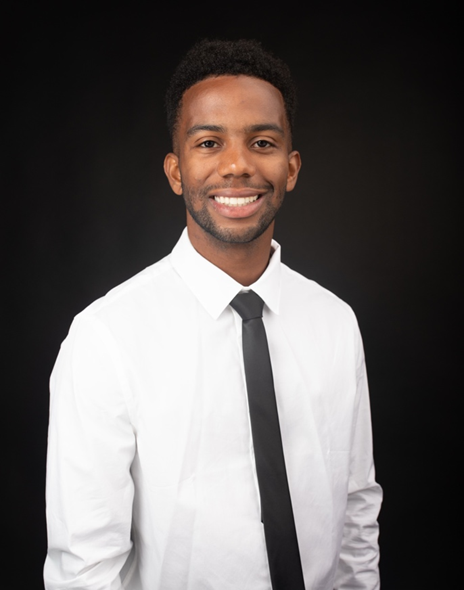
By Kat Brown
Eric Ingram, winner of the 2025-2026 Presidential Graduate Fellowship, sat down to talk to us about his academic journey, clinical practice, and how fellowships support the quality of research and academia.
A current fourth year Ph.D. student in clinical psychology, Eric Ingram is a part of a select group of young scholars researching the wide-ranging consequences of and treatments for traumatic brain injuries. After earning an undergraduate degree at Brown University, Eric has continued his education at University of Kentucky with a specialization in neuroscience under the mentorship of Dr. Justin Karr, and with the noted support of UK researchers Dr. Michelle Martel and Dr. Jessica Burris.
Motivated by a desire to engage directly with the impacted community, Eric has served many hours across practicum sites in Kentucky, supervised settings where training clinicians work one-on-one with patients. In a recent interview, he highlighted his work this semester in a Louisville health clinic in which he works with a supervisor specializing in concussions, “[we give patients] treatment plans, I have an active role in their recovery. I like being able to see the clear difference [of patients] coming in like ‘the world is ending and everything sucks’ and they come out feeling better, noticing an improvement.” Considering the weight of his work, Eric shared that sometimes patients come into the clinic with tough realities due to their concussions, like parents being no longer able to provide for their young children or student athletes being separated from their classrooms, community, and teammates. “I just want to get people back out, to do the things that they’re supposed to do, or want to do.”
In support of Eric’s work, he has earned University of Kentucky’s prestigious and competitive 2025-2026 Presidential Graduate Fellowship. Reflecting on how this opportunity supports his academic and professional goals, Eric noted “there’s a lot of cascading little things, [as well as] direct benefits” with “the biggest thing [being] time back.” This fellowship is an award that allows him to reduce his teaching workload and focus more time on clinical training, dissertation research, and networking with prominent researchers in his field. One thing Eric hopes to accomplish with this award is to further connect with researchers at University of California, Davis to learn new, specialized statistical methods called network analysis, “[they] wrote the code, and we’ve collaborated…but they’re going to be teaching me how to do it [myself].”
Eric also wanted to highlight community members who may want to help support future graduate students, noting that “the payoffs are exponential… it doesn’t take too big of an investment. If you give someone $2,000 [to travel to learn how] to do a scan or something – that’s going to be super instrumental.” Students across the psychology department rely on funding, public and private, to access essential trainings, carry out and communicate the results of research, networking with others, etc., and Eric’s biggest takeaway for our newsletter readers is “it helps more than people probably think…there’s so many different ways it can show up.”
Please take some time to help us congratulate Eric Ingram, Presidential Graduate Fellow and clinical psychology Ph.D. student on his award and accomplishments, earned through his dedication to helping Kentuckians across the state suffering from traumatic brain injuries.
